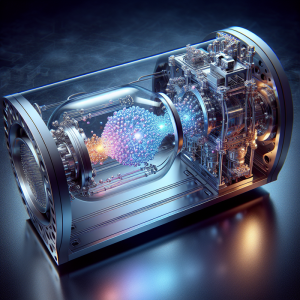Neurotechnology: The New Frontier for Innovators
Neurotechnology is carving a path as the new battleground for leading-edge innovators, merging the power of artificial intelligence with the complexities of the human brain. With a history of interest in implantable systems capable of interpreting cerebral signals to formulate words or initiate tasks, the evolution of AI is now propelling neurotechnologies at an unprecedented pace.
Pioneering Neurodevices and Quality of Life
Pioneering neurodevices are poised to vastly improve the quality of life for individuals suffering from serious conditions. Take for example Rodney, afflicted with ALS, who received a groundbreaking implant from Synchron, a neurotechnology firm funded by industry giants including Jeff Bezos of Amazon and Bill Gates of Microsoft. Rodney’s Stentrode device enables him to interact with a computer merely through his mental input, highlighting the empowering capabilities of neurotechnology.
Neurotechnology in Consumer Electronics
Beyond healthcare, the possible applications in consumer electronics are captivating big tech corporations. Research firm Precedence Research estimates the neurotech sector, with a valuation of $15 billion in 2023, on a trajectory to exceed $55 billion by 2032. Giants in the tech world, like Apple and Meta, are exploring the creation of non-invasive gadgets that could permit users to command electronics simply with their minds.
Privacy Concerns with Neurotechnology
The widespread integration of neurotechnology into consumer goods raises critical privacy issues. Tech ethicist Nita Farahany has expressed profound concern, noting the brain may be our last bastion of privacy, and we have already surrendered virtually every other facet of our private lives. As companies progress with neuroimaging studies, the sanctity of mental privacy could be at risk.
Neuralink and Meta’s Research Initiatives
Neuralink, Elon Musk’s venture, made headlines with the implantation of a brain-computer interface into a human subject. Despite encountering some hurdles, Neuralink remains a key player in the industry’s progression. Similarly, Meta is intensifying its research initiatives, with endeavors to interpret thoughts and sensory experiences in progress.
The Intersection of Commercial and Medical Advancements
An experiment by Meta’s Fundamental AI Research team saw AI use neural data to reconstruct images that participants had been looking at. This development marks considerable advances in the capabilities of neurotechnology, although as Jean-Rémi King, a leading neuroscientist in the project, indicates, the current goal is to recreate the visual perceptions of individuals.
Addressing Ethical and Privacy Concerns
With the intersection of commercial and medical advancements, the essential discussion revolves around society and regulatory bodies addressing the ethical and privacy concerns that neurotechnology introduces. Initiatives like those in Colorado are at the forefront, crafting legislature to safeguard our cognitive privacy while ensuring life-enhancing medical treatments remain available to those in need. As the field of neurotechnology and brain-computer interface technologies mature, the need for vigilant consideration of these issues becomes ever more critical.
























